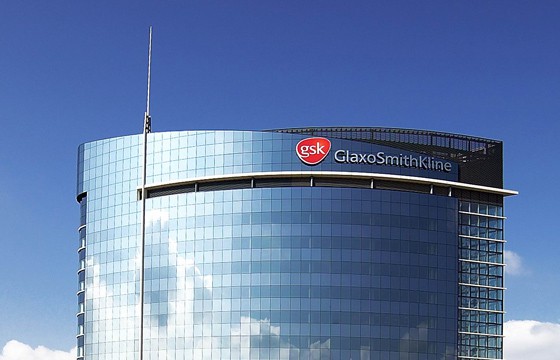
GlaxoSmithKline has already shed around a third of its pipeline projects since CEO Emma Walmsley took over, and two more have now been cut as she follows through on a pledge to focus only on the most promising candidates.
The two abandoned projects include a phase 2 strep pneumonia vaccine that had been positioned as a follow-up to its Synflorix brand, and a new influenza vaccine candidate in early-stage clinical testing that was designed to protect against all strains with a single shot.
GSK’s head of global vaccines Roger Connor said the vaccines weren’t priority projects among GSK’s vaccine pipeline. He told analysts on a conference call that the company is particularly excited about the three respiratory syncytial virus (RSV) vaccines coming through development – one for children, one for maternal use, and one for older adults – and a therapeutic vaccine targeting bacteria that cause exacerbations in chronic obstructive pulmonary disease (COPD).
The decision to drop the two vaccines came as another of GSK’s vaccines – Shingrix for shingles – saw its sales rocket in the first three months of the year, reaching £357m ($467m) well ahead of analysts’ expectations and thanks to strong growth in the US.
The vaccine is on course for more than £1bn in sales this year, in what would be its second full year on the market, and GSK is scrambling to meet demand, recently announcing a $100m spend on new capacity for the vaccine adjuvant used in the project.
Shingrix’ performance helped GSK’s vaccine unit to a 23% sales increase to £1.5bn that helped drive the group’s top line up 2% to £4.2bn, and there was another solid performance from the company’s ViiV HIV unit, with sales up 4% to £1.1bn, although that was a point below analyst expectations.
The bulk of GSK’s HIV sales come from its dolutegravir-based combination products Tivicay and Triumeq, but greater competition in the market from arch-rival Gilead Sciences with new products such as Biktarvy (bictegravir/emtricitabine/tenofovir alafenamide) has started to chip away at growth levels.
That was particularly apparent for three-drug combo Triumeq, which slipped 2% in the quarter to £614m, and while Tivicay managed a 7% increase overall to £383m, its sales contracted in the US and growth was pegged back to single digits elsewhere.
GSK is looking to a series of new two-drug HIV drugs to inject new momentum in the HIV franchise, and the first of these – Juluca (dolutegravir/rilpivirine) – added £70m in the first three months of the year.
Walmsley said on the call that growth of the new drug, which makes dosing as simple as one tablet per day, was “encouraging”, although sales of the drug only advanced slightly over the £62m posted in the last quarter of 2018.
All eyes now are on Dovato (dolutegravir/lamivudine), GSK’s new two-drug combination that was recently the first ever once-a-day two-drug regimen to be approved for treating treatment-naïve HIV patients.
ViiV chairman David Redfern said Juluca and Dovato – alongside GSK’s new long-acting cabotegravir/rilpivirine combination that is scheduled for an FDA verdict next year – will drive HIV sales growth as Tivicay and Triumeq slow down.
Overall, Walmsley said the results were “a strong start to 2019, which is an important year of execution for GSK.”




